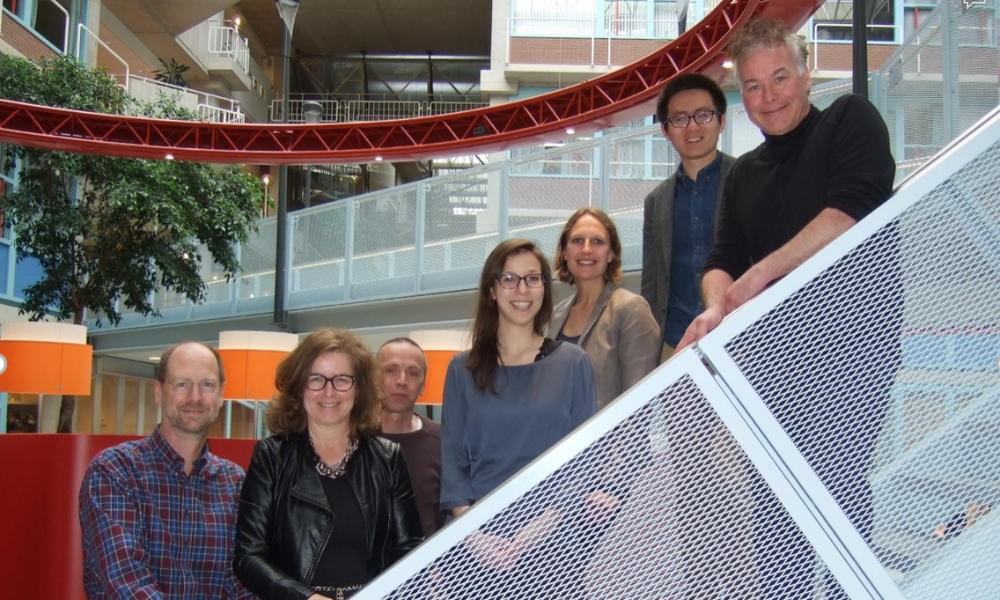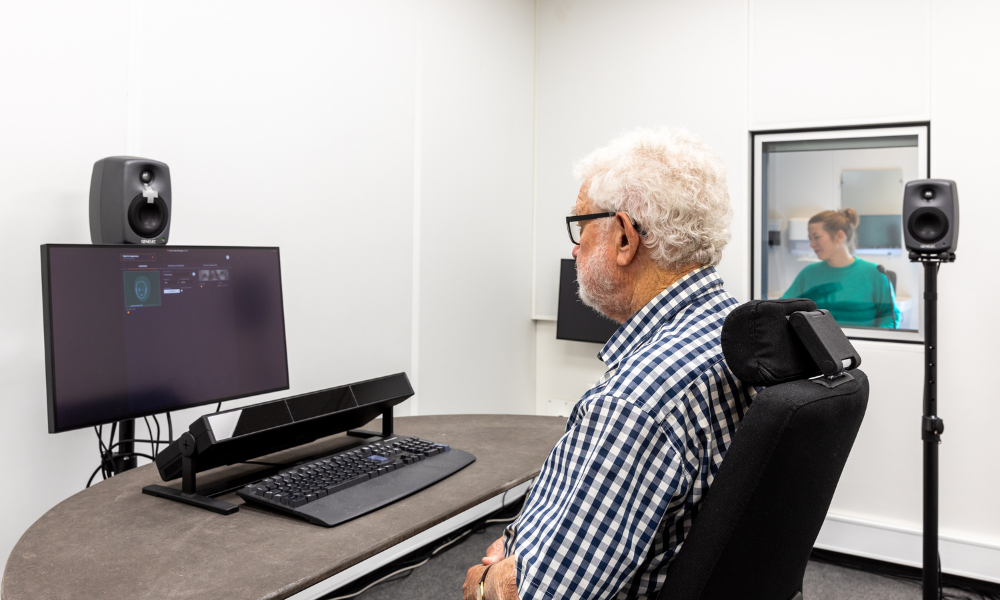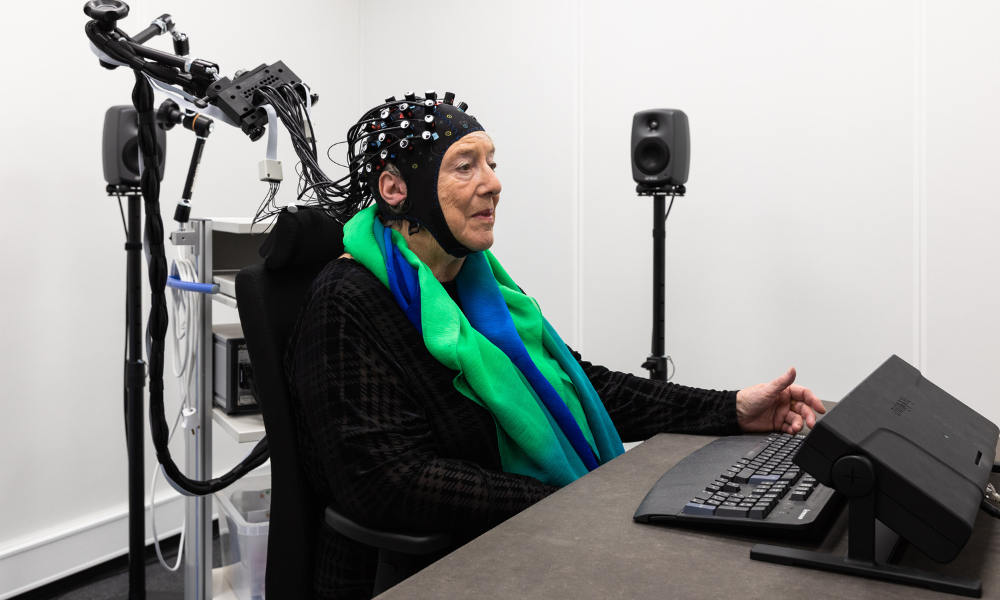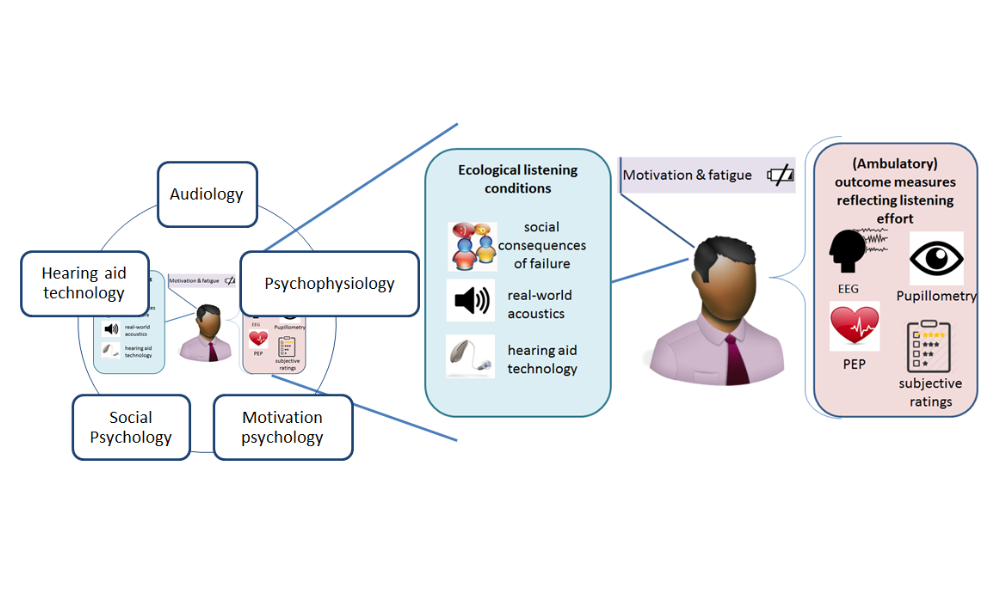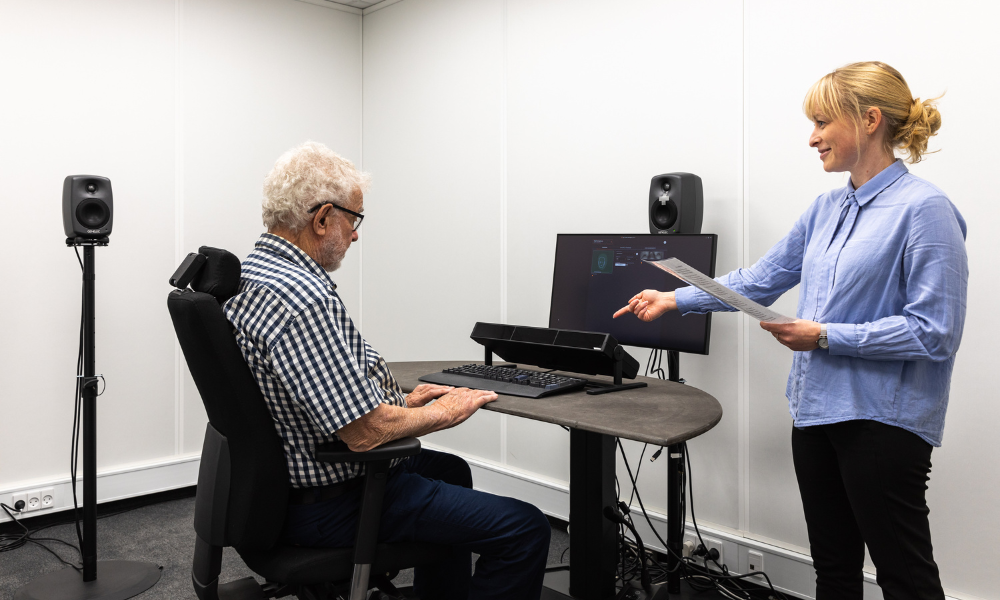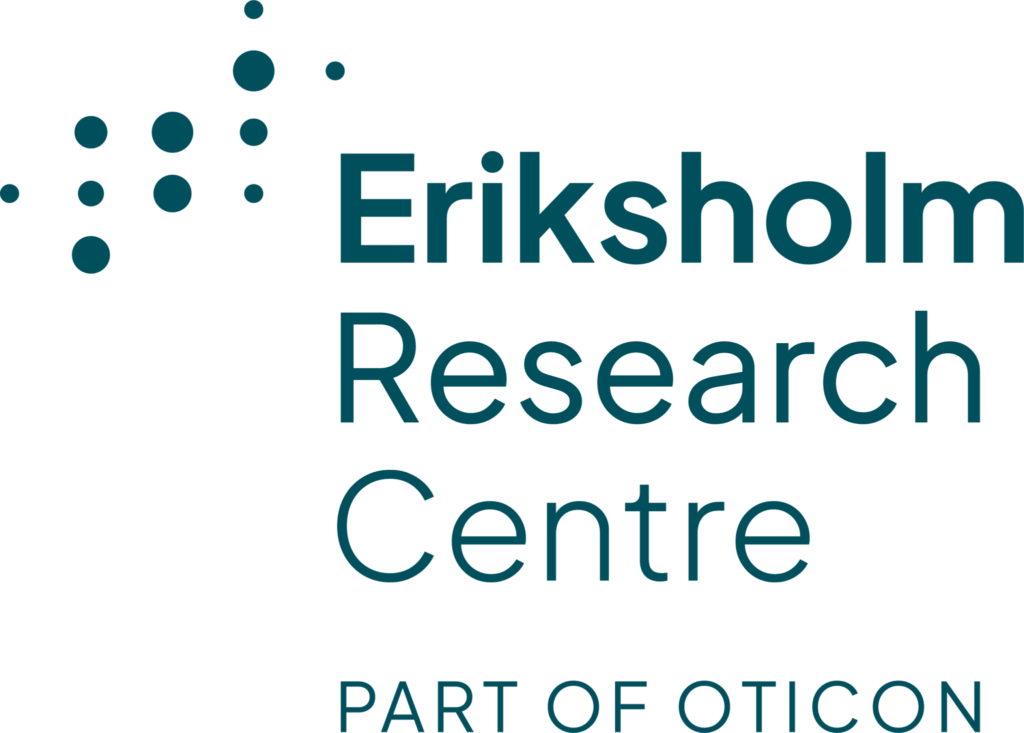Introduction
Hearing impairment is a leading cause of disability worldwide. As people age, their hearing ability deteriorates inevitably. Increased listening effort, distress, lack of energy, fatigue, increased levels of need for recovery and sick leave are notorious consequences of age-related hearing loss.
LISTEN aimed to address cognitive consequences of hearing loss including listening effort and fatigue. The project, which was funded by the European Commission and ran between 2013 until 2017, was a collaboration between Eriksholm Research Centre, VU University medical center, Amsterdam in the Netherlands, and National Center for Rehabilitative Auditory Research, Glasgow in the UK.
Aims

Results
Results from the LISTEN project have further improved the pupillometry method so that modulations in listening effort across the entire range of everyday listening situations, from acoustically challenging to easy listening situations, can be revealed.
Specifically, LISTEN provided evidence highlighting the value of more realistic (that is – easier and quieter) listening situations rather than the acoustically challenging situations when assessing hearing aid benefits. A novel finding was that while hearing aids do increase speech understanding in difficult listening situations, they also significantly reduce listening effort under easier listening conditions.
Moreover, studies from LISTEN revealed that an individual’s level of fatigue influences the level of listening effort that can be exerted, representing a breakthrough in our understanding of the mechanisms behind listening effort and pupil dilation responses.
